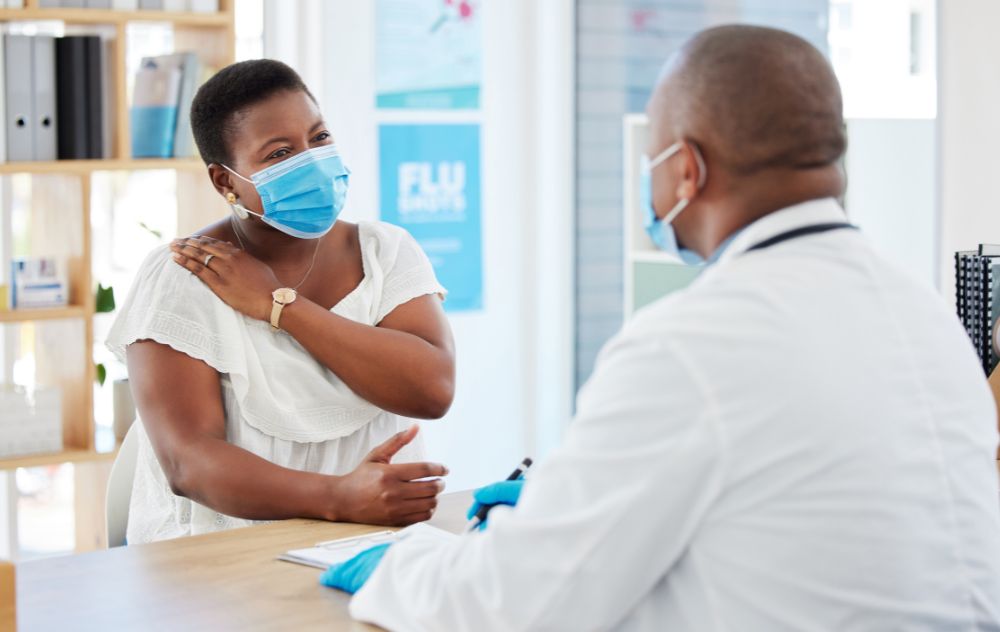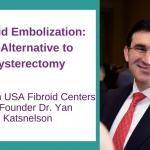
Fibroids are benign growths in the uterus. When describing tumors or growths, “benign” means that they are non-cancerous and do not spread to other parts of the body. However, while benign growths aren’t dangerous in themselves, they can still cause symptoms or complications depending on their size, location, and number.
Will My Fibroids Turn Into Cancer?
Fibroids, also known as leiomyomas, are non-cancerous (benign) growths that develop in the smooth muscle of the uterus. The will practically never turn into cancer and are not linked with additional uterine cancers.
However, in extremely rare cases, a form of uterine cancer called leiomyosarcoma can develop from the same smooth muscle tissue as fibroids. Leiomyosarcoma is a malignant tumor, but it is important to note that this cancer is very rare, affecting fewer than 1 in 1,000 women with fibroids. Even though the cancer originates from the same tissue, fibroids themselves do not turn into cancer.
There have been a few case reports suggesting a transition from a benign leiomyoma to a cancerous leiomyosarcoma, researchers argue that this transformation remains unproven.
Leiomyosarcoma: The Exception, Not the Rule
What is the difference between a fibroid and leiomyosarcoma? Leiomyosarcoma originates in the smooth muscle of the uterus, and it’s often difficult to distinguish from a benign fibroid until it’s removed and examined by a pathologist.
The key difference is that leiomyosarcomas tend to grow rapidly and cause symptoms that are different from typical fibroid symptoms, such as:
- Rapidly increasing size of the mass
- Pain or tenderness that doesn’t improve
- Abnormal bleeding, particularly outside of your menstrual cycle
- Swelling in the abdomen
- Unexplained weight loss
In rare cases a mass that was initially thought to be a fibroid may turn out to be cancerous. When this occurs, prompt treatment is necessary. Early diagnosis and regular monitoring of fibroids are key to managing symptoms and ensuring that any potential complications are caught early.
How are Fibroids Diagnosed?
An interventional radiologist typically diagnoses fibroids through imaging techniques and a detailed review of your medical history and symptoms. Interventional radiologists specialize in minimally invasive procedures, so they often rely on imaging to guide their treatment plans, which may include procedures like Uterine Fibroid Embolization (UFE) to treat fibroids. Before any imaging is performed, the interventional radiologist will review your medical history, including any symptoms you may be experiencing, such as heavy bleeding, pelvic pain, or frequent urination. The most common imaging technique used to diagnose fibroids is a pelvic ultrasound. This is often the first step in identifying fibroids. An ultrasound uses sound waves to create images of the uterus, allowing the doctor to identify any abnormalities such as the size, location, and number of fibroids. It is a non-invasive, safe, and effective method for detecting fibroids.
When there is concern about a fibroid, a biopsy will be done. Currently, the only way to fully tell if a fibroid is cancerous is to order a biopsy. This allows the tissue to be examined more closely to rule out malignancy, providing both you and your doctor with critical information about your health.
How are Fibroids Treated?
Being proactive in seeking treatment for fibroids is not only about managing symptoms but also about gaining peace of mind. Early detection and regular follow-up care can help you understand whether your fibroids are growing, shrinking, or causing other complications.
There are a number of treatments available for uterine fibroids, but one of the most effective, non-surgical options is Uterine Fibroid Embolization (UFE). UFE can significantly reduce the size of fibroids and help alleviate the symptoms they cause, such as heavy bleeding and pelvic discomfort. UFE also preserves the uterus, making it a desirable choice for women who wish to retain their fertility or who prefer not to undergo more invasive procedures like a hysterectomy.
USA Fibroid Centers focuses solely on UFE and are known as experts in our communities. In this procedure, the doctor uses an advanced ultrasound to find the fibroids, then inserts a tiny catheter into the artery that supplies blood to the fibroid. Finally, small particles are sent through the catheter into the artery to block blood flow, which gradually causes the fibroid to shrink and die.
Check with USA Fibroid Centers for Help
If you notice symptoms like heavy and prolonged periods, anemia leading to fatigue, pelvic pain and pressure, pain during intercourse, frequent urination, and/or constipation and abdominal bloating or protruding belly, scheduled an initial consultation. These are symptoms that may be associated with uterine fibroids, and minimally invasive treatment is available.
We have clinics across the nation. Call us today at 855-615-2555 or schedule your appointment online. Most insurances accepted.
Sources
1“FDA Warns of Cancer Risk in a Type of Uterine Fibroid Surgery,” American Cancer Society, April 22, 2014, https://www.cancer.org/latest-news/fda-warns-of-cancer-risk-in-a-type-of-uterine-fibroid-surgery.html.
2Elizabeth A. Stewart, “Differentiating uterine leiomyomas (fibroids) from uterine sarcomas,” UpToDate, December 28, 2017, https://www.uptodate.com/contents/differentiating-uterine-leiomyomas-fibroids-from-uterine-sarcomas.



